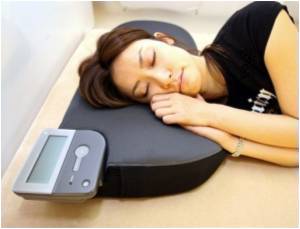A sleepless night can result in short-term euphoria, which can potentially lead to poor judgment and addictive behavior, a new study has found.

"When functioning correctly, the brain finds the sweet spot on the mood spectrum. But the sleep-deprived brain will swing to both extremes, neither of which is optimal for making wise decisions," said Matthew Walker, associate professor of psychology and neuroscience and lead author of the study.
The findings underscore the need for people in high-stakes professions and circumstances not to shortchange themselves on sleep, Walker said.
Puzzled as to why so many people with clinical depression feel more positive after a sleepless night - at least temporarily - the researchers used functional Magnetic Resonance Imaging to study the brains of 27 young adults, half of whom got a good night's rest and the other half of whom pulled an all-nighter.
Brain scans of the participants who pulled all-nighters showed heightened activity in the mesolimbic pathway, a brain circuit driven by dopamine, a neurotransmitter that regulates positive feelings, motivation, sex drive, addiction, cravings and decision making.
The findings have been published in the Journal of Neuroscience.
Advertisement











